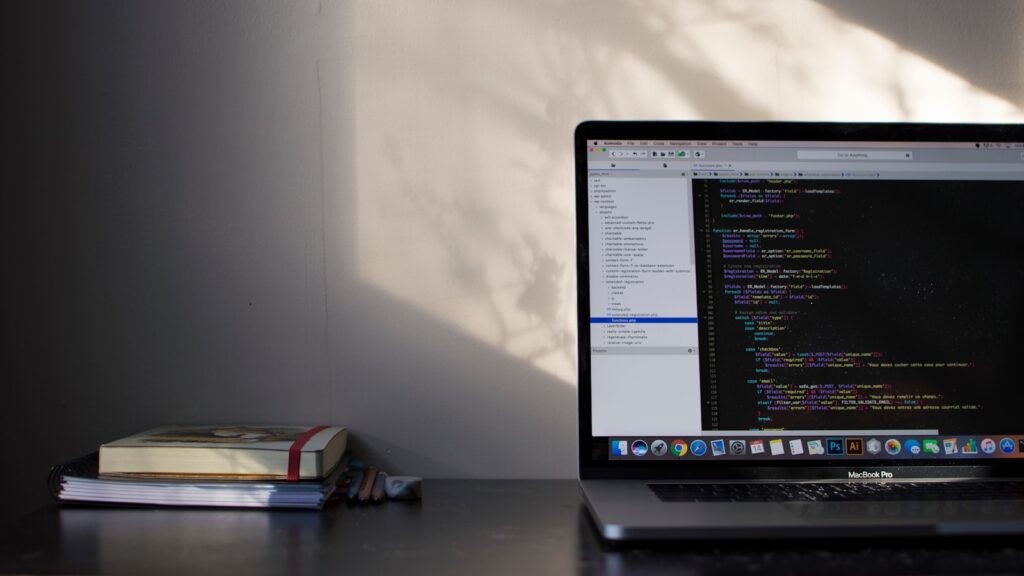Did you know that nearly 85% of lifeguard candidates face challenging interview questions that test their situational awareness and emergency response skills? Understanding lifeguard interview questions is crucial for securing a position and ensuring the safety of swimmers. This article delves into the most common questions asked in lifeguard interviews and provides insights on how to prepare for them effectively. Read on to learn how to ace your lifeguard interview and stand out from the competition.
What are Lifeguard Interview Questions?
Lifeguard interview questions are designed to evaluate a candidate’s knowledge, skills, and readiness to handle emergency situations in aquatic environments. These questions assess both technical abilities and interpersonal skills, ensuring the candidate can maintain safety and provide assistance when needed. Understanding these questions helps applicants prepare thoroughly and present themselves as competent and reliable candidates.
Most Common Lifeguard Interview Questions

How would you handle a situation where a swimmer is struggling in the deep end?
When handling a struggling swimmer in the deep end, it’s important to assess the situation quickly and decide the best course of action. Lifeguards should remain calm, use rescue equipment if necessary, and ensure their own safety while performing the rescue. Effective communication with other lifeguards and bystanders is also crucial to coordinate the rescue effort.
Example: “I would quickly assess the swimmer’s condition and the safest approach for rescue. Using a rescue tube, I would swim to the swimmer, secure them, and bring them to safety while keeping their airway above water. I would signal to other lifeguards for assistance and ensure bystanders remain clear of the area.”
What steps do you take to prevent accidents around the pool?
Preventing accidents involves vigilant supervision, enforcing pool rules, and maintaining a safe environment. Lifeguards should be proactive in identifying potential hazards and addressing them promptly. Regularly checking safety equipment and educating swimmers about safe practices are also key preventive measures.
Example: “I constantly scan the pool area for any potential hazards and ensure all safety equipment is in place and functional. I enforce pool rules strictly, reminding swimmers of the importance of safety. Additionally, I educate swimmers about safe practices to prevent accidents before they happen.”
Describe a time when you had to work as part of a team to handle an emergency.
In emergency situations, teamwork is essential for effective response and ensuring everyone’s safety. Lifeguards must communicate clearly, understand their roles, and support each other during rescues. Reflecting on past experiences where teamwork was crucial can demonstrate a candidate’s ability to collaborate under pressure.
Example: “During a busy day at the pool, a child was found unconscious in the water. Our team quickly coordinated, with one lifeguard performing CPR while I managed the crowd and called for emergency services. Thanks to our effective teamwork, we successfully revived the child and ensured they received prompt medical attention.”
How do you handle difficult or uncooperative swimmers?
Dealing with difficult swimmers requires patience, clear communication, and firmness in enforcing rules. Lifeguards should remain professional and calm, de-escalating situations without compromising safety. It’s important to explain the rules and the reasons behind them to gain compliance.
Example: “I address difficult swimmers by staying calm and explaining the importance of following pool rules for everyone’s safety. If they remain uncooperative, I firmly but politely enforce the rules and, if necessary, involve a supervisor. My goal is always to resolve the situation without escalating tension.”
What certifications do you hold that qualify you for this position?
Certifications validate a lifeguard’s training and readiness to perform their duties. Highlighting relevant certifications such as CPR, First Aid, and Lifeguarding emphasizes a candidate’s preparedness. It’s important to keep these certifications up-to-date and ready to present during the interview.
Example: “I am certified in CPR, First Aid, and Lifeguarding by the American Red Cross. These certifications ensure that I am trained in the latest lifesaving techniques and protocols. I regularly update my certifications to maintain my skills and readiness for any emergency situation.”
How do you stay fit and prepared for the physical demands of lifeguarding?
Physical fitness is crucial for lifeguards to perform rescues and maintain vigilance. Regular exercise, swimming practice, and maintaining a healthy lifestyle are essential. Demonstrating a commitment to physical fitness can reassure employers of a candidate’s capability.
Example: “I stay fit by swimming regularly, doing strength training, and engaging in cardiovascular exercises. This routine helps me maintain the endurance and strength needed for lifeguarding. I also follow a healthy diet to support my physical activities and overall well-being.”
How do you handle stress and stay focused during emergencies?
Managing stress and staying focused are vital for effective lifeguarding. Techniques such as deep breathing, staying organized, and maintaining a clear mindset can help. Sharing specific strategies for stress management can illustrate a candidate’s resilience and preparedness.
Example: “I handle stress by practicing deep breathing and staying organized during emergencies. I focus on my training and protocols, which helps me stay calm and make quick, effective decisions. After an incident, I take time to debrief and reflect on how to improve my response in the future.”
What would you do if you noticed another lifeguard not paying attention?
Addressing inattentiveness among colleagues is important to ensure overall safety. Lifeguards should approach the situation respectfully, reminding their colleague of their responsibilities. If the behavior continues, it’s necessary to escalate the concern to a supervisor.
Example: “If I noticed another lifeguard not paying attention, I would discreetly remind them of the importance of staying vigilant for everyone’s safety. If the issue persisted, I would report it to a supervisor to ensure the safety of all swimmers. It’s crucial that we all remain alert and responsible at all times.”
How do you prioritize tasks when multiple situations arise simultaneously?
Prioritizing tasks requires assessing the urgency and potential risk of each situation. Lifeguards must decide which situation needs immediate attention and delegate tasks if possible. Effective prioritization ensures the most critical issues are addressed promptly.
Example: “When multiple situations arise, I assess which one poses the greatest immediate risk and address it first. I communicate with other lifeguards to delegate tasks and ensure all situations are managed efficiently. This approach helps to maintain control and prioritize safety.”
Can you describe a time when you went above and beyond your duties as a lifeguard?
Going above and beyond showcases a lifeguard’s dedication and commitment to their role. This might include proactive safety measures, exceptional customer service, or assisting in non-emergency situations. Providing a specific example highlights a candidate’s initiative and responsibility.
Example: “One time, I noticed a child who seemed anxious about swimming. I took extra time to reassure them and offered to help them practice in the shallow end. This not only helped the child feel more confident but also ensured their safety and enjoyment of the pool.”
How to Get Prepared for Lifeguard Interview Questions

Study Lifeguarding Techniques and Safety Protocols
Familiarizing yourself with lifeguarding techniques and safety protocols is essential. Review the latest guidelines from reputable organizations such as the American Red Cross. Practice scenarios to ensure you can respond effectively in emergencies. This preparation will build confidence and demonstrate your commitment to the role.
Practice Common Interview Questions
Rehearse answers to common lifeguard interview questions to articulate your thoughts clearly and confidently. Mock interviews with friends or mentors can provide valuable feedback. Ensure your answers highlight your skills, experience, and dedication to lifeguarding. Being well-prepared can help you make a strong impression during the interview.
Maintain Physical Fitness
Staying physically fit is crucial for the demands of lifeguarding. Incorporate swimming, strength training, and cardio exercises into your routine. This not only prepares you for physical tasks but also demonstrates your commitment to the role. A fit lifeguard is better equipped to handle emergencies and maintain vigilance.
Stay Updated on Certifications
Ensure all your certifications are up-to-date and relevant to the position you are applying for. Regularly review and renew certifications such as CPR, First Aid, and Lifeguarding. This shows employers that you are dedicated to maintaining your skills and knowledge. Being prepared with current certifications can set you apart from other candidates.
Understand the Facility
Research the facility where you are applying to understand its specific needs and challenges. Familiarize yourself with its layout, rules, and the types of activities offered. This knowledge can help you tailor your answers during the interview to show your suitability for the role. Demonstrating an understanding of the facility can impress potential employers.
Special Focus Section: Handling High-Stress Situations
Handling high-stress situations effectively is a critical skill for lifeguards. Here are some advanced tips:
- Stay Calm and Composed: Use deep breathing techniques to maintain composure during emergencies.
- Prioritize Communication: Clear and concise communication with your team can streamline emergency responses.
- Regular Training Drills: Participate in regular training drills to keep your skills sharp and response times quick.
- Mindfulness Practices: Incorporate mindfulness practices into your routine to enhance focus and reduce stress.
Understanding these advanced techniques can enhance your effectiveness and preparedness as a lifeguard.
Conclusion
In conclusion, being well-prepared for lifeguard interview questions is essential for securing a position and ensuring the safety of swimmers. Understanding common questions and knowing how to respond can set you apart from other candidates. Stay committed to maintaining your skills, certifications, and physical fitness to excel in this role. Good luck with your lifeguard interview and making a positive impact on pool safety!
